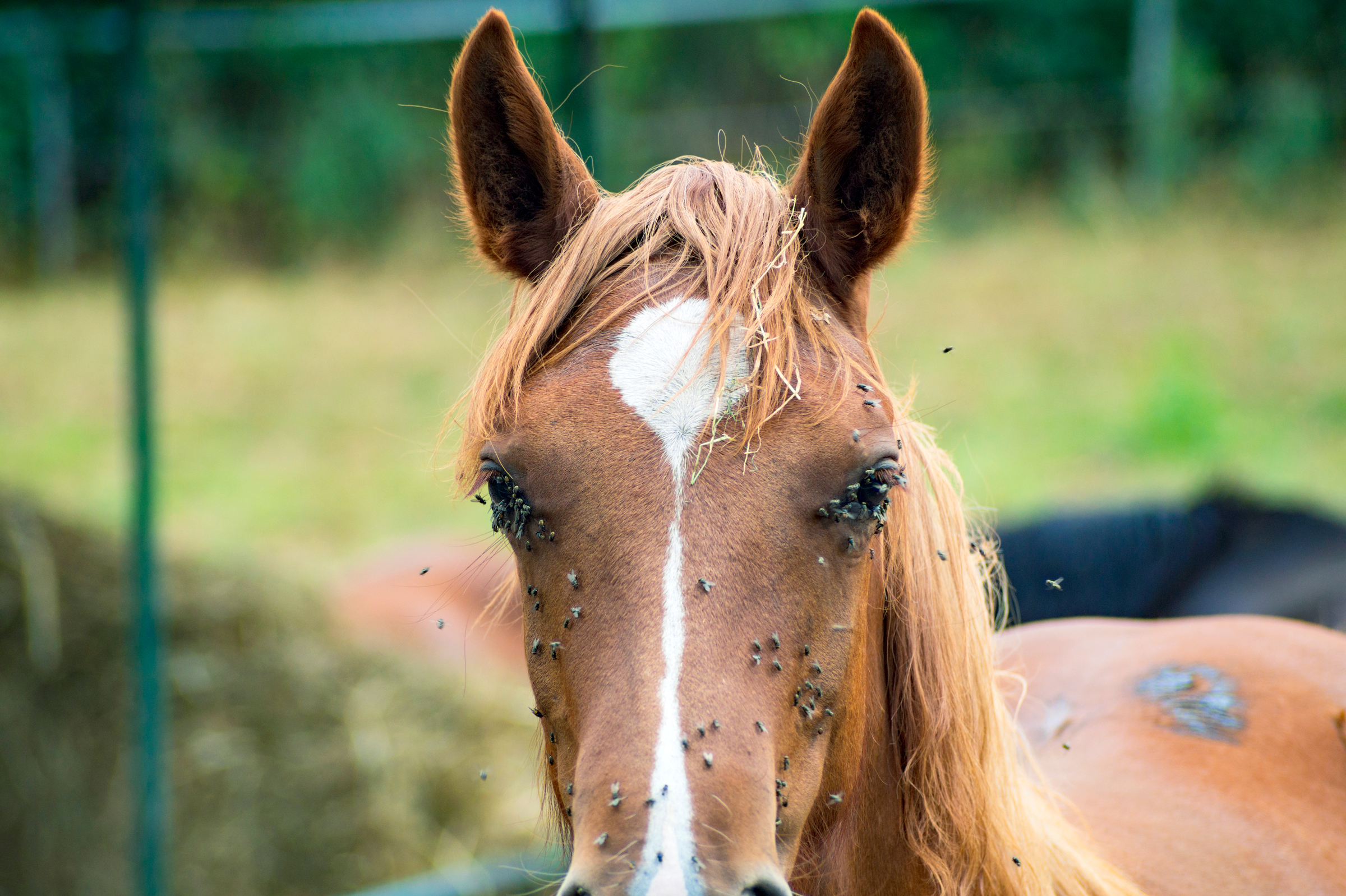
Flies are not just irritants. They can also create health problems for a horse and its owner. Some of the health issues are mild and easily resolvable, while others are serious or potentially fatal.
Equine Infectious Anemia (EIA)
This highly fatal viral disease is transmitted through bites from horseflies or deer flies as well as from contaminated blood products or instruments. Flies that are interrupted from a blood meal are able to transfer virus between horses. The virus causes recurrent fever, lethargy, poor appetite, low platelet numbers and anemia.
Deer flies like to feed on the head and neck; horseflies prefer the legs and back. Deer flies are managed well with spot-ons around the neck and head. Many species of horseflies prefer sunlight and don’t tend to enter a dark barn.
Sweet Itch aka Queensland’s Itch
Caused by the Culicoides midge (no-see-um), sweet itch is an allergic hypersensitivity to the gnat’s saliva. The horse mutilates itself rubbing on anything in reach in order to pacify the intense itch. He’ll rub off his mane and tail, and often the horse’s rump, face and chest are raw and bleeding. In some cases, there is concurrent airway disease.
Culicoides gnats breed in wet areas that are rich in organic debris, so control can target these habitats.
Onchocerca
Biting midges (Culicoides) also can infect a horse with Onchocerca, which are filarial worms that migrate beneath the skin or within the eye. The result is dermatitis of the neck, chest, withers, forelegs or abdomen, or uveitis of the eye, often as a reaction to dead or dying microfilaria. Onchocerca microfilaria are effectively killed by treatment with ivermectin.
Black Fly Dermatitis
Black flies feed on the inside of horse ears and along the neck, chest and belly. Horses can develop an allergic reaction to the saliva from black fly bites to form wheals (hives) and itching. Bleeding and crusting lesions within the ears cause discomfort and might develop into aural plaques.
Baby oil or roll-on insecticides inside the ears serve as repellents, as do fly masks with ear covers.
Horn Flies
Horn flies often cause problems for horses that are pastured with or near cattle. These flies like to feed on the shoulders, neck, withers and belly, contributing to abdominal midline dermatitis. Insecticide repellents are effective.
Habronema or Summer Sores
Biting stable flies and houseflies that feed on wounds or chronically moist skin can infect the tissue with Habronema stomach worms. The result is a hypersensitivity reaction to the worm larvae—wounds won’t heal, instead proliferating with large amounts of granulation tissue. Treatment with ivermectin or moxidectin kills off Habronema spp. almost 100% of the time and is effective for prevention.
Stable flies like to breed on rotting or fermenting hay where they feed on bacteria in the hay debris. Usually 95% of stable flies perch on vegetation, buildings and fences, with just 5% on horses at any given time.
Rain Scald or Equine Granular Dermatitis
Biting stable flies and more innocuous houseflies can carry fungi into wounds to cause phycomycosis, which results in ulcerated skin lesions that make the horse look like he has been scalded or burned. This tends to occur in moist climates with extended periods of warm weather, such as the climate found in the southeastern United States.
Fly Control
Fly populations are controlled through a variety of strategies:
- environmental management and cleanup of debris and moist areas;
- the use of fly predator wasps in manure; and
- manure composting to kill fly eggs and larvae.
